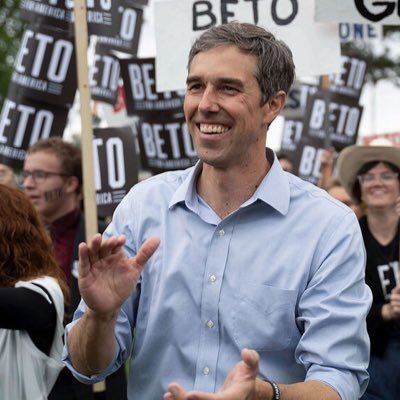A school shooting in Uvalde that left 19 children and two teachers dead. The end of a nearly 50-year-old constitutional right to an abortion.
A history-making spring in Texas is laying the groundwork for a contentious final four months in the race to lead the state, where Republican incumbent Gov. Greg Abbott remains the favorite but is confronting his toughest Democratic opponent yet in Beto O’Rourke.
While O’Rourke works to harness the anti-incumbent energy spurred by the seismic events of the past few months, Abbott is banking on a general election centered on stronger issues for him: the economy and the border. But even as the national environment looks bleak for Democrats, O’Rourke has been able to keep the race competitive in Texas — and Abbott’s campaign is not taking any chances.
“People are energized right now, but you know, our job is going to be to keep them that way up until Election Day on Nov. 8,” said Kim Gilby, chair of the Democratic Party in Williamson County, a battleground county north of Austin that in 2018 went for both O’Rourke for U.S. Senate and Abbott for governor. “We can’t just lose sight — there’s so much at stake right now.”
Gilby added she was not worried about O’Rourke’s ability to keep people engaged, calling him the “Energizer bunny” of the campaign trail.
Abbott still carries most of the advantages in the race — money, for one, and a midterm election that is expected to favor Republicans across the country. The governor’s allies argue that voters are more worried about the skyrocketing inflation and illegal immigration — and that O’Rourke cannot separate himself from President Joe Biden, who is very unpopular in Texas.
“First and foremost, those [social] issues won’t overcome the reality of Biden’s economy and when you ask Texans what are their biggest issues, their answers are inflation, the economy and the border,” said Dennis Bonnen, the former Texas House speaker, adding he doesn’t think attitudes in Texas about abortion and guns are enough to move the needle. “Those are issues that have been around forever. The lines have been drawn … and I don’t see significant movement either way.”
Abbott himself has downplayed the political impact of Roe v. Wade getting overturned, arguing that his gubernatorial race in 2014 against then-state Sen. Wendy Davis was a “referendum on the issue of abortion” and he won resoundingly.
To O’Rourke and his supporters, though, this spring has been game-changing. His campaign said it has had 52,000 volunteer shift sign-ups in the five weeks since the Uvalde shooting, a 300% increase over the five weeks prior. After the Roe v. Wade ruling, which came on a Friday, the campaign set out to knock on 30,000 doors over the following weekend and hit 30,279 through 87 separate block walks statewide.
“For us to do that four months away from when this election is decided just shows you how energized the people of Texas are,” O’Rourke said on a Facebook Live afterward.
Beto mentions the latest Quinnipiac poll to bolster his case for optimism. This story came out before both the CBS/YouGov poll, which as noted was done at least partly before the Dobbs decision was released, and the UT/Texas Politics Project poll, which was done fully before Dobbs. We’ll surely get more polling data soon enough, and we’ll see fundraising reports soon. Those are the main objective things one can point to, the rest is mostly vibes. As Scott Braddock put it on the Tuesday CityCast Houston podcast, Abbott is the favorite but Beto has a chance. He’ll need a lot to go right – this story talks about those things, as well as the things that likely won’t go so well for him – and he’ll need to deliver a message that resonates. He’s been delivering a strong critique of Abbott, and he’s absolutely been drawing crowds and generating excitement. He’s just doing it from a non-advantageous starting point. Check back after we get some more of the objective stuff and we’ll see how the vibes are.

